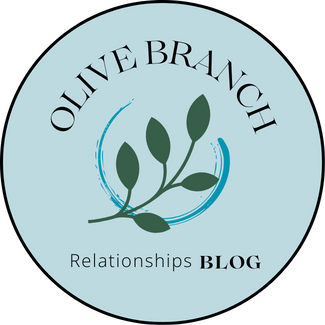Sarah and John have been together for 8 years. They love each other. They also barely go a day without a fight.
It starts small—who forgot to switch the laundry, who didn’t check in during the workday—but it always escalates. John storms off. Sarah cries in the kitchen, feeling abandoned. Then comes the silence. Sometimes hours, sometimes days.
They both feel helpless.
And underneath that? Alone.
The Real Struggle
Their fights aren’t really about laundry or texts. They’re about deeper fears:
Sarah’s fear of being unseen, dismissed, not mattering.
John’s fear of failing, of being unworthy of love if he can’t get it “right.”
Both learned early in life that expressing needs was risky: Sarah’s dad shut down when she cried. John’s mom criticized him no matter what he did.
Now, in their relationship, they protecting instead of connecting.
What they don’t realize is this:
They’re not fighting each other. They’re fighting the cycle.
The Cycle Is the Enemy
When I work with couples like Sarah and John, one of the first things we do in Emotionally Focused Therapy is gently slow things down (De-escalate) and name what’s happening—not just the behaviors, but the pattern underneath.
She reaches –> He retreats.
He retreats –> She shuts down.
It’s painful. Predictable.
And completely human.
We start by shifting the frame:
“What if the problem isn’t you, or them—but the cycle you both get pulled into?”
When couples begin to see the fight as something between them, rather than against each other, something softens.
They stop pointing fingers.
And start reaching for each other.
The Tool: Naming the Pattern, Changing the Story
I asked Sarah and John to give the cycle a name. Something simple. Something playful, even. They called it “The Shutdown Spiral.”
Now, when tension rises, Sarah sometimes says:
“Wait—I think the Shutdown Spiral is showing up again.”
Noticing the cycle doesn’t instantly fix everything. But it pauses the spin. It creates just enough space for curiosity instead of criticism. For tenderness instead of tension.
They’re learning to tune into the music beneath their words. Sarah’s music says: “I need to know you won’t leave me alone in this.” John’s music says: “I need to know I’m not failing you.”
They’re beginning to realize: they’re on the same team. The cycle is the enemy. Not each other.
If You See Yourself in This Story…
You’re not broken. And your relationship might not be either. Fighting doesn’t always mean it’s over. Sometimes it means you’re stuck in a pattern that no one ever taught you how to break.
You can learn.
Start by asking:
What happens to me when we fight?
What am I really afraid of?
What might my partner be feeling underneath their reaction?
And then, when you’re ready, say what’s true:
“I think we’re caught in something. I don’t want us to fight like this. I want to understand.”
That’s where repair begins. It’s tender work—this slowing down, this shifting of the story. But it’s the beginning of something different. Something more connected.
May this be a small olive branch of hope for wherever you are.
Warmly,
Susan
 Susan Liddy, MAMFT
Susan Liddy, MAMFT
Cornerstone Family Services
Roswell, Georgia
🌿 Ready to Break the Cycle?
If you and your partner feel stuck in painful patterns of conflict, you’re not alone—and you don’t have to figure it out by yourselves. I offer complimentary consultations to help you explore whether couples therapy might be the right next step.
Whether you’re navigating distance, miscommunication, or emotional disconnection, there’s hope for change.
Let’s talk. Sessions are available in-person in Roswell, GA or virtually across Georgia. (My fees, should we choose to work together, range from $125–$135 per session.)


